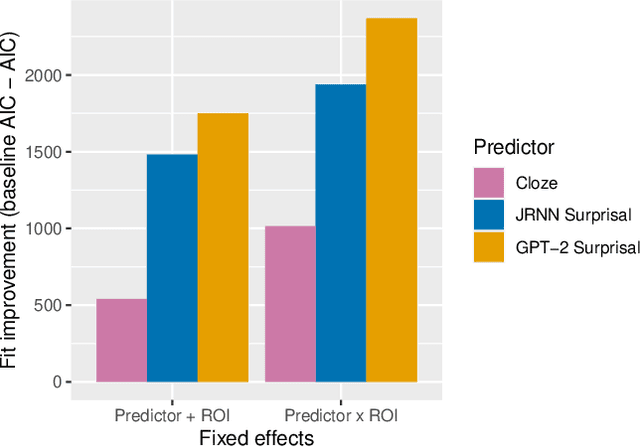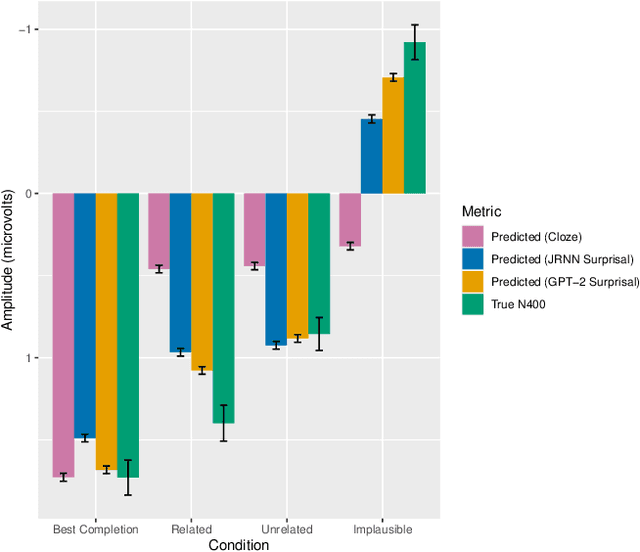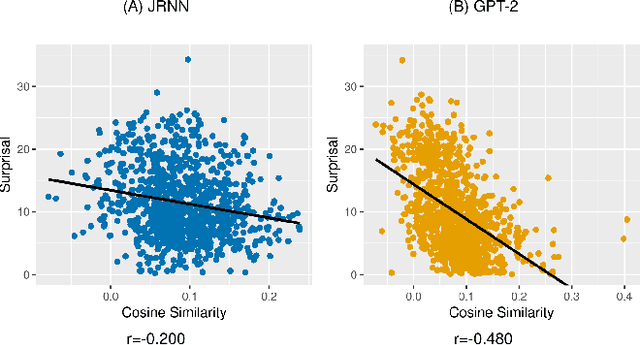Different kinds of cognitive plausibility: why are transformers better than RNNs at predicting N400 amplitude?
Paper and Code
Jul 20, 2021


Despite being designed for performance rather than cognitive plausibility, transformer language models have been found to be better at predicting metrics used to assess human language comprehension than language models with other architectures, such as recurrent neural networks. Based on how well they predict the N400, a neural signal associated with processing difficulty, we propose and provide evidence for one possible explanation - their predictions are affected by the preceding context in a way analogous to the effect of semantic facilitation in humans.
* Proceedings of the 43rd Annual Meeting of the Cognitive Science
Society (2021) 300-306
 Add to Chrome
Add to Chrome Add to Firefox
Add to Firefox Add to Edge
Add to Edge